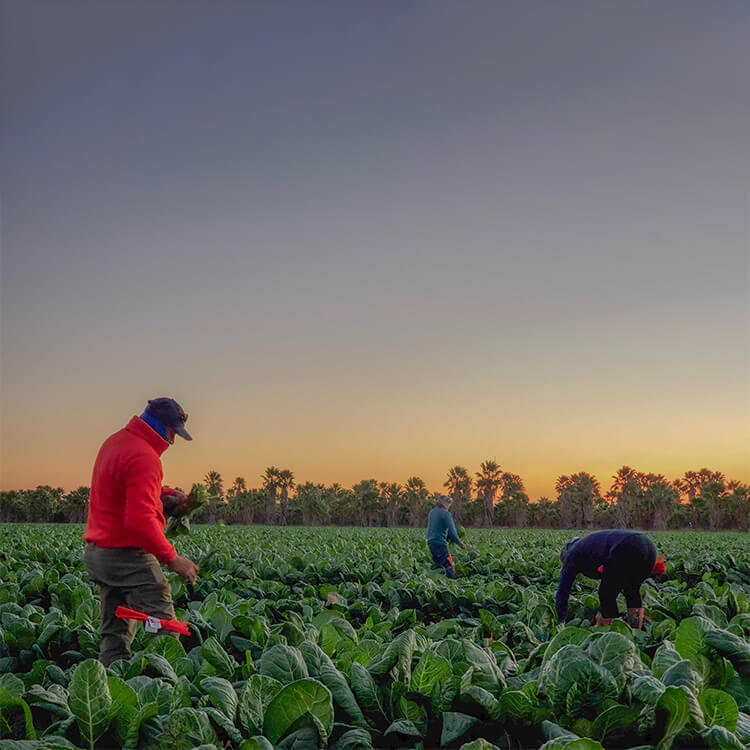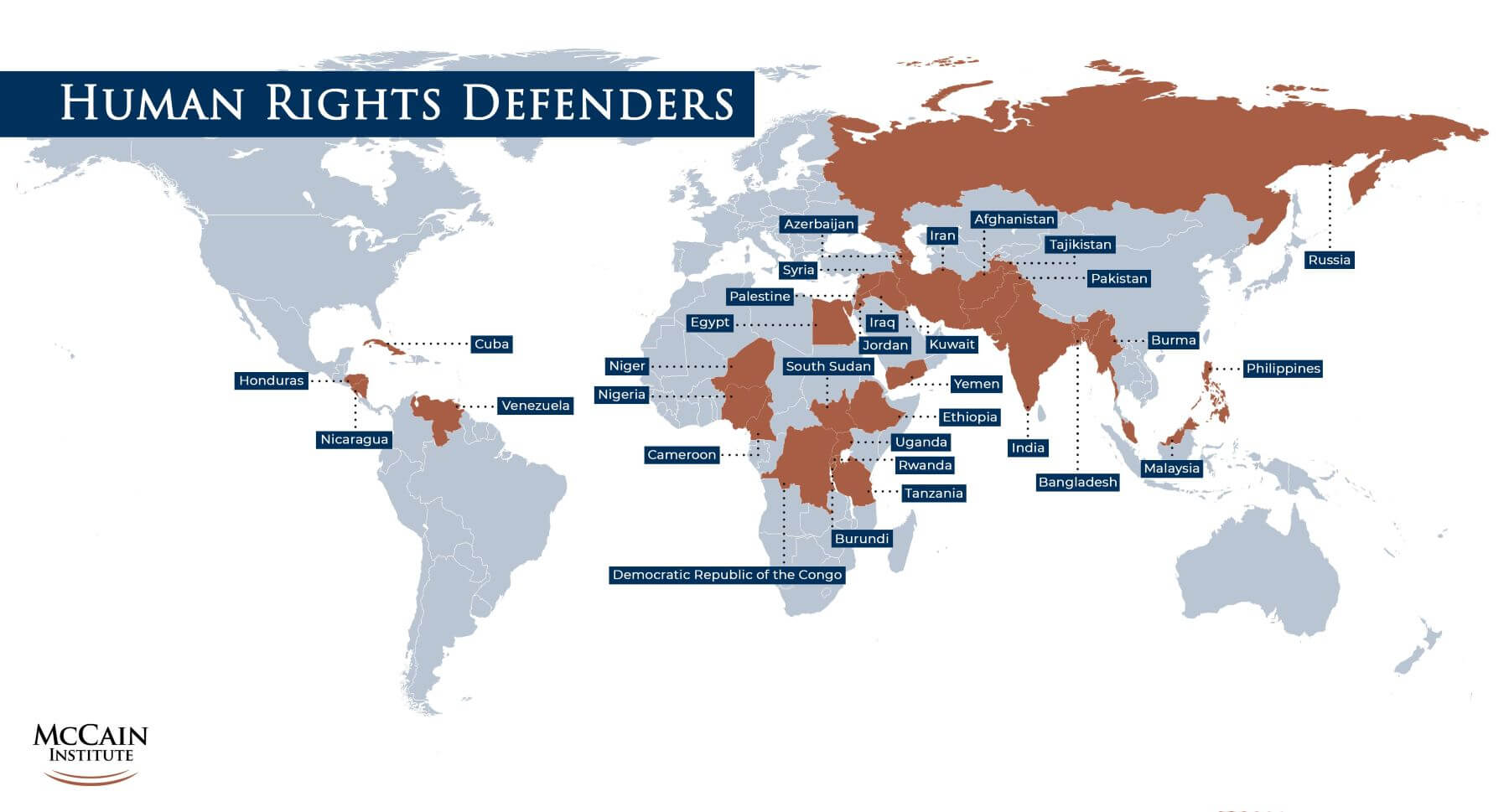Thank you to our friends of the McCain Institute for a successful first-ever virtual Sedona Forum. With the theme of “Defending Democracy,” top experts, policymakers, humanitarians and business leaders from around the globe and on both sides of the aisle engaged in civil and thoughtful discussions about the issues facing the world today. This year’s conference featured the speaker of the House of Representatives, the Senate minority leader, 43 former and current elected officials, the Chairman of the Joint Chiefs of Staff, the UN secretary general, two former heads of government, two former secretaries of state, two former secretaries of defense, two Academy Award winners, an NBA hall of famer, a future first-ballot NFL hall of famer, and many more experts, policymakers, humanitarians and defenders of democracy.
from around the world
represented among speakers
Lorem ipsum dolor sit amet, consectetur adipiscing elit. Curabitur interdum nec ligula in dictum. Nunc aliquet ligula at mauris sollicitudin tincidunt. Aliquam eget felis ut tellus sagittis semper vel a elit. Mauris non gravida orci. Integer ut varius libero. Donec congue imperdiet dignissim. Nam feugiat lectus hendrerit turpis sagittis, vel fermentum ex sodales.
In partnership with the Anti-Defamation League and the Institute for Strategic Dialogue, we are building a national network of interdisciplinary professionals dedicated to addressing targeted violence and terrorism, and its impacts, within the United States. This network is both increasing the efficacy of local prevention frameworks and programs and expanding referrals to qualified programs throughout the country.
In a joint effort with the Center for American Progress, we conducted interviews, round table discussions, surveys and research to inform a comprehensive national policy blueprint, designed to serve as a starting point for a whole-of-government response. This blueprint focuses areas of broad consensus, providing dozens of recommendations that Congress, the Biden Administration, and partners at the state and local level can pursue to counter white supremacist violence.
Expanding on the Peer-to-Peer initiative, we partnered with EdVenture Partners and Credence Management Solutions to challenge university students to develop their own dynamic products, tools, or initiatives to prevent targeted violence and terrorism. University teams compete for cash awards, education scholarships, and optional entry into a one-year sustainment program.
In October 2020, the U.S. Department of Homeland Security concluded that racially and ethnically motivated violent extremists, particularly white supremacist extremists, are “the most persistent and lethal threat in the Homeland.” The UN also identified violent extremism as the “number one internal security threat in several countries.” In response to this threat, the McCain Institute established the Preventing Targeted Violence program, which facilitated student innovation contests on 46 campuses, developed a Prevention Practitioners Network, and crafted a comprehensive Policy Blueprint to End White Supremacist Violence. In its first year, the PTV program has grown into one of the Institute’s most notable programs.
Across all Invent2Prevent projects
To inform Policy Blueprint to End White Supremacist Violence.
In the first seven Prevention Practitioners’ Network virtual workshops.
Preventing and reducing the impact of domestic terrorism and hate-based violence requires actions from character-driven leaders, no matter their role. To empower changemakers to disrupt extremism, our work builds broad, bipartisan support among policymakers, centralizes resources for practitioners and nurtures innovation among college students.
The McCain Institute is building a national network of interdisciplinary professionals dedicated to addressing targeted violence and terrorism, and its impacts, within the United States. This network is increasing the efficacy of locally based prevention frameworks and programs and will expand referrals to qualified programs throughout the country.
The network launched a workshop series convening international and domestic experts on various topics from Needs, Risk, and Threat Assessment to Staffing Multidisciplinary Teams in the Prevention Space. These experts explore existing frameworks, lessons learned, and promising practices they incorporated into their work. To date, over 350 violence prevention and intervention professionals have registered for our virtual workshop series and expressed interest in joining the national network. Workshop recordings have garnered over 1,000 views.
In 2020, the McCain Institute launched a joint project with the Center for American Progress (CAP) to address the rising threat of white supremacist violence in the United States. Seeking to build a broad, bipartisan coalition of support, we hosted roundtable discussions and interviews with over 150 community leaders and experts to create a comprehensive National Policy Blueprint to End White Supremacist Violence which provides a starting point for a whole-of-government response. Since its publication in April 2021, we have conducted 21 briefings to Congressional committees, government agencies and the White House. The blueprint has been featured in nine publications and received endorsements from 13 members of Congress. The blueprint rollout event recordings have received 761 views. CNN reported that the Blueprint recommendations influenced the White House’s first ever National Strategy to Counter Domestic Terrorism.
The Preventing Targeted Violence team completed two semesters of the Peer-to-Peer: Protective Project in the United States and one semester of the Peer-to-Peer: Creating a Message Against Hate program in France. Both programs empowered students to address hate- and school-based violence, giving teams funding to design and implement a product, tool, or initiative with measurable results. At the end of the semester, the best teams won awards to continue their project. Projects ranged from educational programming for elementary schools and university students, online tools for schools to ensure students have access to community-building extracurriculars and awareness campaigns combatting covert racism.
Following the success of Peer-to-Peer, the McCain Institute secured a contract with DHS’s Center for Prevention Programs and Partnerships to launch Invent2Prevent with EdVenture Partners and Credence Management Solutions. Invent2Prevent challenges students at universities across the country to develop, over the course of a semester, their own dynamic products, tools, or initiatives to prevent targeted violence and terrorism. University teams compete for cash awards, education scholarships, and optional entry into a one-year sustainment program. In Spring 2021, 25 teams competed in the first semester of competition reaching over 1.2 million impressions combined. The top four teams featured in the final competition included Mission in Transition from The Citadel, FUSE from Missouri State University, VOICES from Columbia University, and the THiNK Campaign from University of Massachusetts Amherst. $9,000 was awarded to the top teams and $6,000 in scholarships to students pursuing targeted violence studies following the competition.
From raising awareness through the R.E.A.L. Friends Don’t campaign to training law enforcement, service providers and school personnel in Arizona, our team takes a dynamic and innovative approach to building capacity and support for vulnerable populations locally, nationally and globally. The fight against modern slavery continues to be a significant priority of the Institute.

With a team of experienced farmworker outreach advocates, the McCain Institute has provided farmworkers safe, confidential methods to reach beyond the control of labor traffickers to access social services, legal aid, and support from the criminal justice system. Guided by geospatial analysis tools, deep community networks and data, the Institute’s field team has reached over 11,000 farmworkers in the last four years.
One of the many consequences of COVID-19 has been the sharp increase in the number of hours that school-age children are spending online and, concurrently, an increase in reports of online child sexual exploitation. In response, the McCain Institute was proud to launch R.E.A.L. Friends Don’t, a national safety campaign focused on increasing awareness and empowering parents, caregivers and young people to protect themselves and their loved ones from harmful content, grooming or online exploitation.
It’s time to get R.E.A.L. about online child exploitation:
Raise the topic of online safety with your kids.
Educate yourself on the technology your kids are using.
Act if something makes you or your child uncomfortable.
Learn more about how you can help your kids navigate their digital lives.

There has never been a more important time to advocate for human rights and democracy, in the United States and around the world. Our program continues to bring human rights to the forefront of conversations in Washington, D.C., and protect human rights activists around the world.
Hosted by 4 working groups to discuss problems and solutions that affect today’s foreign policy.
Hosted by the Women, Peace and Security Initiative to advance the WPS agenda across governments.
By the We Hold These Truths campaign to promote activism among American youths.
With the COVID-19 pandemic, Human Rights Defenders faced unprecedented challenges in both operations and magnifications of injustices. While our authoritarian regimes imposed restrictions limiting travel and safety, the Human Rights Defenders Program still succeeded in supporting brilliant and resilient activists around the world.

We’ve been working with an award-winning, investigative journalist from Nicaragua, whose report had an enormous impact in Nicaragua and internationally. The United Nations High Commissioner for Human Rights took up the findings of his investigation in their respective reports on Nicaragua, and used it to determine the government's crimes against humanity.
The Human Rights and Democracy Program regularly hosts a series of working groups focused on several topical areas. These meetings, held monthly, are used to convene high level groups of experts on a certain topic to hold closed-door discussions about problems and solutions that affect foreign policy today. This year the HR&D program added two new working groups to make a total of four standing working groups: The Democracy and Human Rights Working Group; the Russia Working Group; America’s Alliances Working Group; and the Working Group on Great Power Competition.
Over the course of 2020, the RWG was convened 14 times and hosted speakers from the Russian opposition, American and international experts, senior U.S. government officials, NGO community, academia and more. Aside from the regular monthly meetings, the group was also convened to address specific time-sensitive topics such as elections in Belarus, the poisoning of Russian opposition leader Alexei Navalny, and protests in Russia’s far east.
Over the course of 2020, the DHRWG was convened seven times and hosted speakers from the NGO community, experienced activists working in the field, journalists and editors of major publications and academia. Each meeting of the DHRWG produced a working group paper which summarized the discussion and provided a series of recommendations for the U.S. government and international community. This year the group covered issues such as: Iran, North Korea, Russia, international press freedom, global labor rights, impact of COVID-19 on human rights around the world, and impact of COVID-19 on elections.
The AAWG was kicked off in October of 2020 and focuses its efforts on reinvigorating the United States’ transatlantic partnerships. The group hosted several high-level speakers including former heads of state, Members of the U.S Congress, leaders of international organizations, members of the European Parliament, U.S.-based NGOs and academia. This working group was convened three times over the course of 2020.
The WGGPC was kicked off in November 2020 and focuses on countering China’s malign influence around the globe. This group’s inaugural meeting was centered on framing the main issues of China’s aggressive foreign policy and speakers from prominent U.S.-based NGOs, former heads of U.S. Federal departments and experienced activists who have dealt directly with Chinese foreign aggression.
Committed to continuing Senator McCain’s legacy of character-driven leadership, the McCain Institute empowers individuals around the world to educate others in the Institute’s leadership curriculum.
working across the globe
in leadership programs
Through our Next Generation Leaders (NGL) programming, the Institute has continued to develop character-driven leaders across the globe. With over 65 program graduates working across 50 countries, we’re proud of the high-level success and accomplishments each is bringing to their area of expertise.
2020 Cohort
Founder of Pioneers International Academy in Ghana, Esther solidified a partnership with ASU’s Digital Prep Academy to build and deliver virtual learning platforms to Ghanaian students.
2020 Cohort
Ximena successfully launched her fair-trade company, Mielanaria, selling out the entire first batch of Mayan honey across Guatemala within weeks. She has secured alliances with Guatemala’s Ministry of Economy and plans to scale to the international market in 2021
2020 Cohort
In partnership with EdVenture Partners, this project empowers university students to address hate- and school-based violence. Each semester, university teams were given $1,000 in seed funding for the development and deployment of dynamic products, tools, and initiatives that produce measurable results. Our 2020 finalists came from Arizona State University, Boise State University, Johns Hopkins University, Missouri State University, and Ohio Dominican University.
NGLs were “In the Arena” in the global fight against COVID-19. Many courageously answered the call to “start where you are, use what you have and do what you can” to make a difference in their communities. Nine NGLs received COVID-19 microgrants from the Institute to bolster their grassroots relief efforts, enabling them to provide medical supplies and mitigate the economic effects of the pandemic in their communities.
2015 Cohort
As the Director of the Bilateral Department of Bhutan’s Ministry of Foreign Affairs, Sonam worked tirelessly to ensure the uninterrupted supply of food items and medical supplies from India, which constitutes 80% of Bhutan’s imports. He led the organization of the 47 evacuation flights to repatriate a total of 4,570 Bhutanese who had been stranded abroad. Finally, he mobilized financial and in-kind assistance from Bhutan’s bilateral partners.
2018 Cohort
As the Minister of Health in Latvia, Ilze led the way in combatting COVID-19 in her country. Due to her strong leadership, Latvia has remained one of the top 5 countries in Europe in terms of lowest infection rates and highest test numbers performed, helping not only to reduce the number of COVID deaths but also to shield the Latvian economy from the grave impacts that other countries have experienced. In addition, the political party which Ilze founded, Movement For!, won the mayorship of Riga this summer.Despite the pandemic’s disruption on all educational activities, the NGLs’ Train the Trainer work continues. Since the inception of the Train the Trainer initiative in 2018, NGLs have used the Institute’s toolkit to train 6,807 people across the globe in the principles of character-driven leadership. Many NGLs successfully pivoted to online training in 2020 or found creative ways to deliver safe, socially distant in-person trainings.
Albania, 2017 Cohort
Dael launched a virtual learning platform of online leadership training modules in Albanian, through which Albanians can obtain a self-paced leadership certificate. He also graduated his fourth class of young Albanian leadership fellows.The Philippines, 2020 Cohort
Judge Requerme conducted a training on character-driven leadership to over 500 educators in her region of Mindanao to support them in their leadership.Myanmar, 2020 Cohort
Upon his return home in fall 2020, Zaw Tu Hkawng completed his first session at his training outpost, graduating 100 student leaders, most of whom gathered in a classroom and received their training via a single smartphone.The Gambia, 2018 Cohort
Haiti, 2018 Cohort
Montenegro, 2019 Cohort
Ljubomir Filipovic launched virtual “Leadership Talks” series, through which he hosts two talks in Montenegrin on character-driven leadership per week – to date he has hosted several NGLs, diplomats, professors from US-based universities, and civil society leaders from around the world.The National Security & Counterterrorism Fellowship program brings together the bright and brightest emerging leaders from the Five Eyes nations to build an enduring community of young national security professionals. The fellowship program is preparing to welcome its second cohort of leaders.
The 12 inaugural fellows hailed from four of the Five Eyes countries – the USA, the UK, Australia, and Canada – and brought with them a wealth of experience in national security, intelligence, and counterterrorism. Throughout the fellowship, in-person modules were held in D.C. and the UK, with virtual programming in the interim. In Fall 2020, the inaugural cohort of fellows concluded its year-long programming with a virtual Australia module, spread out over the course of several months. In Spring 2021, the McCain Institute opened applications for the second cohort of fellows. The 14 selected fellows will be announced in Fall 2021.





“The programme so far has been an invaluable opportunity to understand how our close allies approach shared challenges. Learning with and from experts across the Five Eyes community has been a unique experience, and I have no doubt that the relationships we build will have a long- lasting impact at individual and international levels.”
~ Fellow Chris Selim, Head of Operational Policy and Secretariat, Home Office, United Kingdom
“Hearing from Admiral McRaven was an incredible opportunity in its own right, but resonated even more strongly now as we all reflect on the importance of leadership during crisis. His perspectives on maintaining transparency, owning failure, and building strong teams were particularly poignant in this moment.”
~ Fellow Anna Wallis Dietrich, Analyst at the U.S. National Counterterrorism Center
“There is no doubt that the experiences I gained as a fellow have given me an incredible perspective to advance the study and debate of today’s complex intelligence, security and human rights issues, and inspire a new generation of security experts ready to tackle the ever-evolving war on terror.”
~ Fellow Leah West, lecturer on National Security and Intelligence, Norman Patterson School of International Affairs at Carleton University, Canada
The fellows began their program in 2019 with two week-long modules in Washington, DC / New York and London / Belfast. Fellows were set to convene for the third and final time in Canberra and Sydney in spring 2020; however, COVID-19 disrupted this plan. Instead of meeting in person, fellows convened on Zoom across various time zones in Washington D.C., Ottawa, London, Brussels and Canberra to engage with top national security experts from Australia and the United States.
During one Zoom session, Australian Diplomat and first director-general of the Office of National Intelligence (ONI) Nick Warner encouraged fellows to gain a variety of experiences across various national security and intelligence agencies and reminded them that laughter is an important part of effective leadership. In another session, Admiral William H. McRaven drew upon his 37 years of experience in the U.S. military to offer a range of lessons about leadership under crisis conditions and personal resilience during times of adversity. Finally, during the culminating session of their fellowship, the Institute’s 2021 Kissinger Fellow, the Honorable Julie Bishop, spoke with the fellows about the challenges of the U.S.-China competition, the importance of diversity of voices around the decision-making table and the need for leaders to be both resilient and adaptable.
Our most academic program, the International Rule of Law & Security program, continues to provide resources and learning opportunities to future lawyers interested in supporting the stability and development of growing democracies around the world.



The McCain Institute launched the America’s Alliances Working Group (AAWG) in October of 2020 to focus on reinvigorating the United States’ transatlantic partnerships. The group hosted several high-level speakers including former heads of state, Members of the U.S Congress, leaders of international organizations, members of the European Parliament, U.S.-based NGOs and academia.
In an effort to reaffirm America’s commitment to the transatlantic alliance, as well as other global partnerships that have waned, the McCain Institute convenes the action-oriented and forward-looking America’s Alliances Working Group. It includes high-level American, Canadian, and European political and thought leaders that will assert long standing alliances and create fresh partnerships to ensure that the close transatlantic relationship endures for future generations.
NATO Parliamentary Assembly (PA) needs to have internal cohesion when facing up to the Russian threat. Since Vladimir Putin looks to exploit weakness and division, he must be met “collectively and robustly.” Accepting the illegal annexation of Crimea would lead to a slippery slope. “The U.S. non-recognition of the Soviet occupation of the Baltic states proves that resolve on such issues is by no means a fool’s errand.” Russian cyberattacks need to be addressed with clear investments across the Alliance. “We should also not be afraid to prove to Putin that two can play this game.”
China poses a clear challenge to the Alliance. The Belt & Road initiative is a strategic foray into Europe. We can have a working relationship with China without being naïve enablers. The rules of engagement must therefore be made clear. Allowing Chinese tech companies such as Huawei to make investments in critical infrastructure like 5G networks is “a price too high.”
America must retake the seat of leadership but “do it with humility.” A new administration should reaffirm its assurances to NATO but also to other global treaties and commitments. The recent troop withdraw from Germany was done without any strategic review or discussion within the Alliance. Since this is now seen as a punitive action against Germany and sends a message of disunity to Russia, the decision should be reversed.
Eastern Europeans believe that “America disappeared strategically from the region since the failure of the Bucharest 2008 summit.” The vision of a Europe “Whole, Free, and at Peace” was left incomplete. NATO PA needs to send a clear signal of recommitment to NATOs Open Door policy to Georgia and Ukraine. The Eastern Europeans have great experience on how to deal with Russia but America’s strength is needed to back the policies up.
The recent democratic backsliding among some NATO member states needs to be acknowledged. NATO works because it’s a community of values. “It will not survive simply as a transactional security arrangement.” NATO should create a Center of Excellence on Democracy to fortify the principles the Alliance is based on.
In partnership with Bakamo Social, the McCain Institute has created an interactive dashboard displaying unique data on public perception of NATO and mis- and disinformation. This dashboard presents analysis of disinformation based on explicit discussions on disinformation to shed light on the level of awareness of the threat, not the presence of adversarial narratives. The analysis discriminates between discussion in the media and peoples’ organic discourse and also displays the evolution of the conversation over time.
The dashboard analyzes millions of sources (Twitter, Facebook, blogs, news sites and other social media) to measure the volume and trend of the conversations around NATO. The tool also measures when NATO is mentioned together with Russia, China, or the topic of disinformation; essentially determining the level of association of the aforementioned threats with NATO.
The Institute was privileged to welcome Secretary Mark T. Esper, former Secretary of Defense and Secretary of the Army, as the inaugural John S. McCain Distinguished Fellow. We are equally honored to announce the Honorable Julie Bishop, former Foreign Minister of Australia as the 2021 Kissinger Fellow.
At the core of our strategy is constructive engagement and convening experts. By hosting forums and events that assemble subject-matter experts, we can better promote our values through solution-oriented and substantive conversations. 2020 and the Coronavirus Pandemic provided us the opportunity to pivot and create virtual content that helped make these in-depth conversations more accessible.
This year, we launched its successful virtual book talk series where Institute leaders interview authors of important newly released books on American politics, policy and leadership with the intention to engage the American people in a dialogue that affirms the importance of character-driven leadership and America’s leadership in the international community.
355 Attendees
As a professor, author, international democracy organization chair, U.N. ambassador – not to mention America’s 64th secretary of state and highest-ranking woman in the history of the U.S. government at that time – Madeleine Albright has played a role in nearly every major foreign policy debate of our time. Along the way, she’s learned lessons, gained insights and managed to keep her sense of humor.140 Attendees
This event featured McCain Institute Board of Trustees Chair Cindy McCain alongside McCain Institute Executive Chairman Ambassador Josette Sheeran for a discussion of her new book “Stronger: Courage, Hope, & Humor in My Life with John McCain.”
186 Attendees
Washington Post Foreign Policy Columnist and CNN Political Analyst Josh Rogin joined Ambassador Mark Green to discuss his new book, “Chaos Under Heaven: America, China and the Battle for the 21st Century,” in the latest installment of the McCain Institute’s Authors & Insights Book Talk Series. As one of America’s preeminent foreign policy journalists, Rogin has covered the U.S.-China relationship from both sides of the Pacific and uses that experience to take a deep look at the past and future of this critical great power relationship.
285 Attendees
With the rise of authoritarianism in many parts of the world, the need for a renewed commitment to free and open democracy has never been clearer. In “Twilight of Democracy: The Seductive Lure of Authoritarianism,” Anne Applebaum dissects the shift of declining liberal democracies and rising authoritarianism and argues that before reestablishing the commitment to democratic values globally, we need to reaffirm it back here in the United States.229 Attendees
Mark Salter has collaborated with John McCain on all seven of their books, including The Restless Wave, Faith of My Fathers, Worth the Fighting For, Why Courage Matters, Character Is Destiny, Hard Call, and Thirteen Soldiers. For 18 years, Salter served as Sen. McCain’s speechwriter and advisor in both the U.S. Senate and on the campaign trail.287 Attendees
When making critical national security decisions, what role should principles of democracy, freedom and human rights play in the decision-making process? As the 26th National Security Advisor to the President, H.R. McMaster constantly considered this question and more as he helped shape American foreign policy from inside the West Wing.185 Attendees
In the first edition of the McCain Institute’s Authors & Insights event series, former World Bank President Robert Zoellick joined Ambassador Mark Green to discuss his newest book, “America in the World: A History of U.S. Diplomacy and Foreign Policy.” Having served as deputy secretary of state and U.S. trade representative throughout his career, Zoellick has had unique and consistent insight into American decision-making in the foreign policy arena and can speak to what the country’s future aspirations should be.
President Joe Biden made his first overseas trip to Europe to attend the G7, NATO and EU Summits, as well as met with Russian President Vladimir Putin. The world’s eyes looked to Europe as the trip represented the United States’ potential return to a more traditional approach to its transatlantic alliances. To continue the critical work of Senator John McCain on this issue, the McCain Institute hosts a new public conversation series between Dr. Mark T. Esper, the John McCain Distinguished Fellow and former U.S. Secretary of Defense, and experts on various issues related to challenges and threats to U.S. national security – a rising China, increasing international authoritarianism, the global plague of disinformation, etc.

In the spirit of debate and open forums, Straight Talk Live convened a panel of experts to discuss current issues in American politics. Featuring prominent experts ranging from campaign managers to pollsters to a former FEC Chairman, we hosted two Straight Talk Live forums in 2020 to discuss the historic election and implications.